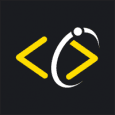Top Augmented Reality & Virtual Reality Companies in Switzerland
Are you Searching for Top AR & VR developers? BusinessFirms has accumulated Top virtual reality & augmented reality development companies in Switzerland that provide innovative solutions to clients. Out of the varied options available in the industry, it is a herculean task for prospects to Looking Top Virtual Reality & Augmented Reality application developers. To assist service seekers in their search for geniune AR/VR Let's join, BusinessFirms has mentioned prominent developers of this domain. So, without any second thoughts, survey the following mentioned Top VR Companies in Switzerland & AR companies to Looking the right firm for your project.
3 Companies
Codes Orbit is the organic collaboration between budding Entrepreneurs/business owners and the most highly respected programming team in the world. All aspects are covered, from start to finish mobile / web apps to complex AI development. Codes Orbit Australia has you covered. Talk to Australian owners and lets see your dreams take shape.
<$25/hr
50 to 249
2019
Switzerland
We at Bitforge develop exclusively in-house software for any mobile device, augmented and virtual reality software according to the highest standards of a fast growing as also challenging industry. In fact, that’s the fuel that keeps our young team of engineers, designers and copywriters everyday motivated to create amazing software products for today’s and tomorrows mobile market.
<$25/hr
10 to 49
2004
Switzerland
We are combining principles of interaction design and engineering with story and technology for unique products and client solutions. Challenge Us! We bring clarity to complex projects. If you have an interesting technology, UX, IoT, adaptive technology or communication challenge for us we want to hear from you.
<$25/hr
2 to 9
2013
Switzerland
